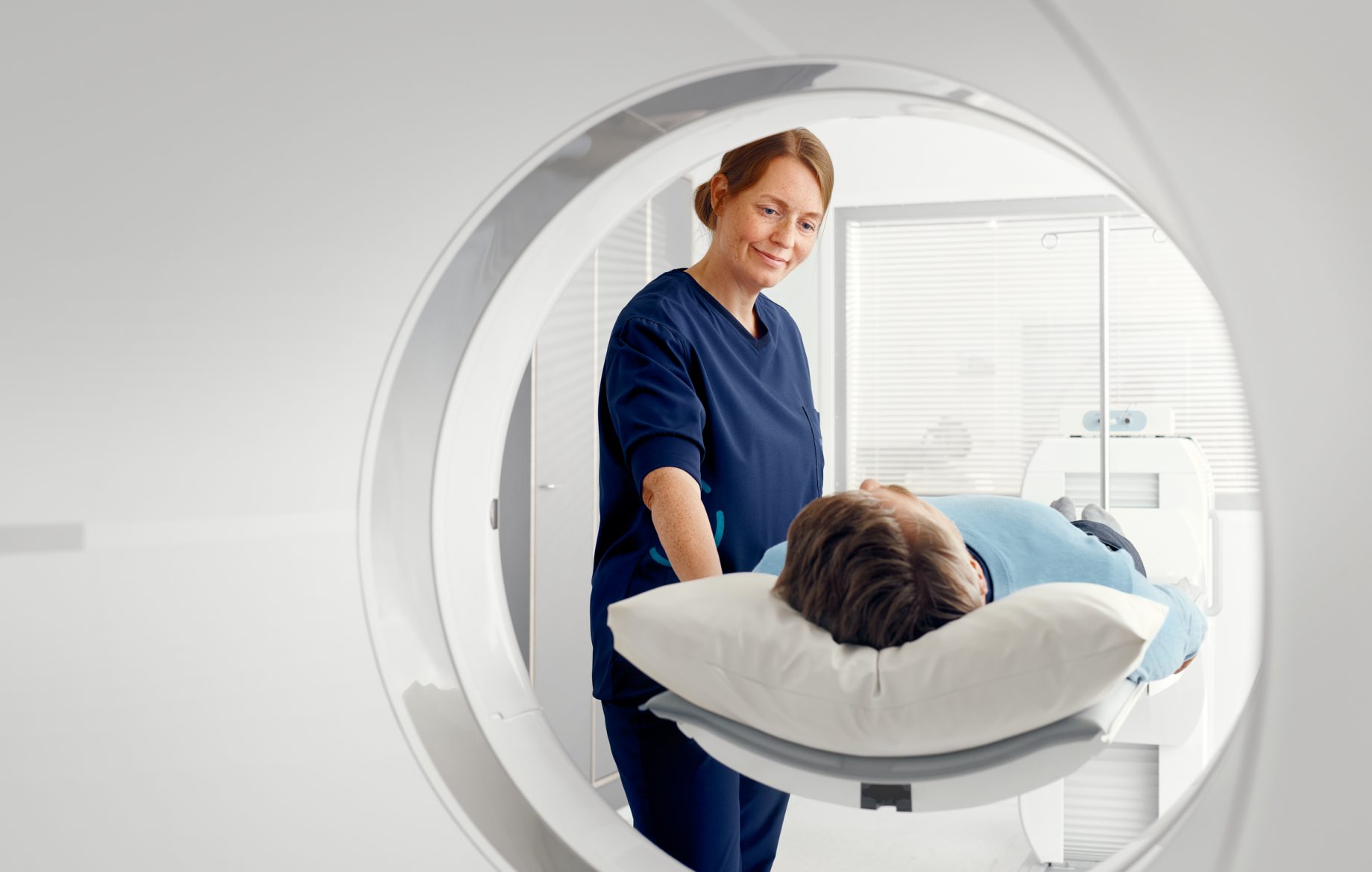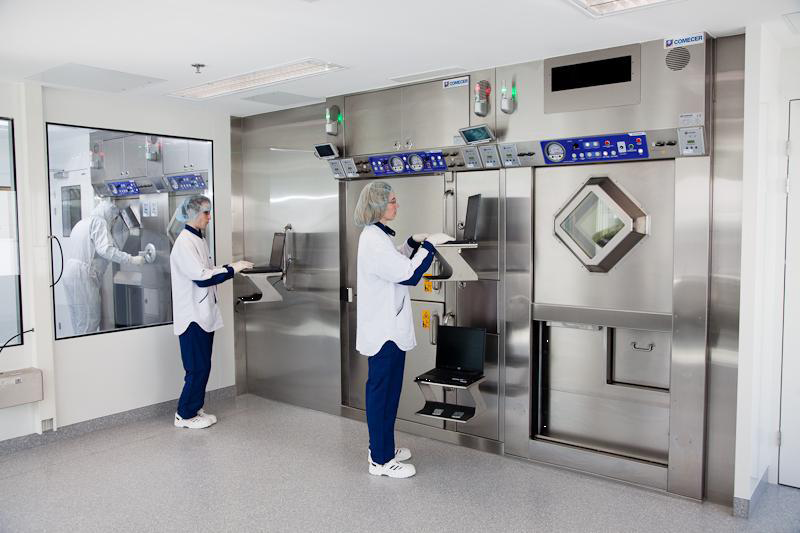The temporary technical problem in the data network connections
A temporary technical problem occurred in the data network connections of Docrates Cancer Center. We apologise for any delays caused...
Read moreMon–Fri 8–16

The radiopharmaceutical used is always selected in a case-specific manner. The radioisotopes most commonly used in cancer treatments are samarium, iodine, rhenium, lutetium and yttrium. The most common tracer in the imaging of cancer is fluorodeoxyglucose (FDG). The attending doctor together with the Chief Physician of Molecular Radiotherapy & Nuclear Medicine will determine the tracer that is optimal in any given situation.
For example, FDG is a tracer which can not only be used in diagnosing of different types of cancers, but also in assessing their response to treatments. A tracer named PSMA, instead, is utilised in the overall staging of prostate cancer, and natriumfluoride (18F-NaF) is an excellent tracer for examining tumor staging to the bones.
PSMA is particularly sensitive in identifying post-operative or post-radiotherapy recurrences of prostate cancer at very low PSA-levels, as well as the dissemination of early prostate cancer to, for example, lymph nodes. PSMA imaging enables a more accurate diagnosis of prostate cancer, which means that the treatment can be better tailored using methods such as modern radiotherapy, promoting a good quality of life. Being able to accurately locate the cancer is also very important for the surgeon, among others, when planning a prostatectomy.
In addition to prostate cancer, the focus area in tracer diagnostics at Docrates is gynaecological cancers, particularly breast cancer.
MAP Medical Technologies operates in the same building as Docrates Cancer Center. It has a cyclotron for the manufacture of radionuclide tracers and a GMP-level laboratory. There are only a handful of cancer hospitals in the world that can so optimally take advantage of the location of a cyclotron and imaging equipment (PET-CT, SPECT-CT) under the same roof.

A temporary technical problem occurred in the data network connections of Docrates Cancer Center. We apologise for any delays caused...
Read more
Hannu Nurmio was aware that prostate cancer is the most common cancer in older men. However, after the diagnosis was confirmed,...

Early detection of colorectal cancer is crucial for successful treatment. If diagnosed early, up to 90% of cancers can be...

Docrates Cancer Center is the first service provider in the Nordic region to launch a new experimental alpha radiation treatment...
Contact us!
Mon-Thu 8:00-18:00, Fri 8:00-16:00
